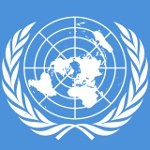International Day of Care and Support Date in the current year: October 29, 2026
 International Day of Care and Support is a United Nations observance held annually on October 29. It was created to highlight the importance of care work, both paid and unpaid, and encourage governments around the globe to implement comprehensive care and support policies.
International Day of Care and Support is a United Nations observance held annually on October 29. It was created to highlight the importance of care work, both paid and unpaid, and encourage governments around the globe to implement comprehensive care and support policies.The term “care work” encompasses all tasks that directly involve care for others such as child care, health care, all levels of teaching, and unpaid domestic work. Although care work is primarily associated with taking care of those who cannot take care of themselves (children, the sick, and the elderly), it can also refer to any work done in the immediate service of others. Care work is essential to both individual well-being and the functioning of society.
Paid care workers perform care work for pay or profit, whereas unpaid domestic carers do not receive monetary compensation. However, both types of care workers are regarded as part of the workforce because unpaid care work generates social wealth. For example, proper child care ensures that children develop into productive members of society.
Sadly, many care workers around the world are not getting financially compensated enough or at all for their work. Care work around the globe continues to be defined by a lack of protections and benefits, inadequate wages or non-compensation, and the risk of physical, mental, and, in some instances, even sexual harm.
Research has shown that women are responsible for the majority of unpaid child care. The greater likelihood of women to perform in unpaid care work has contributed to the low wages in care-based professions. The assumption that women would provide these services without the guarantee of financial compensation has devalued care work, resulting in these occupations being underpaid compared to other professions that require similar skills and training but are not equivalent to domestic tasks.
In countries with high immigration rates, a high percentage of domestic care work is performed by immigrant women. For example, in the United States, half of the domestic workforce identifies as Black, Hispanic, or Asian American / Pacific Islander, and about 35 % of domestic workers were not born in the United States. Scholars have referred to this dynamic as the “care chain”, where women who can afford to do so hire other women to perform domestic tasks, and many of these women are immigrant women of color.
The United Nations General Assembly designated October 29 as International Day of Care and Support in July 2023. The observance has two main goals: to highlight the importance of investing in the care economy and creating care and support systems in order to recognize, reduce and redistribute unpaid care and domestic work; and to recognize and value paid care workers as essential workers.
To achieve these goals, it is crucial to break down gender stereotypes associated with care and support, as well as those linked to other factors such as age, race, ethnicity, and migratory status. The elimination of these stereotypes will help with the transitioning from informal and unpaid care work to paid care and domestic work, and facilitate the creation of quality and well-paid jobs in the care economy.
- Category
- UN Observances
- Tags
- International Day of Care and Support, international observances, UN international day, care work, care economy